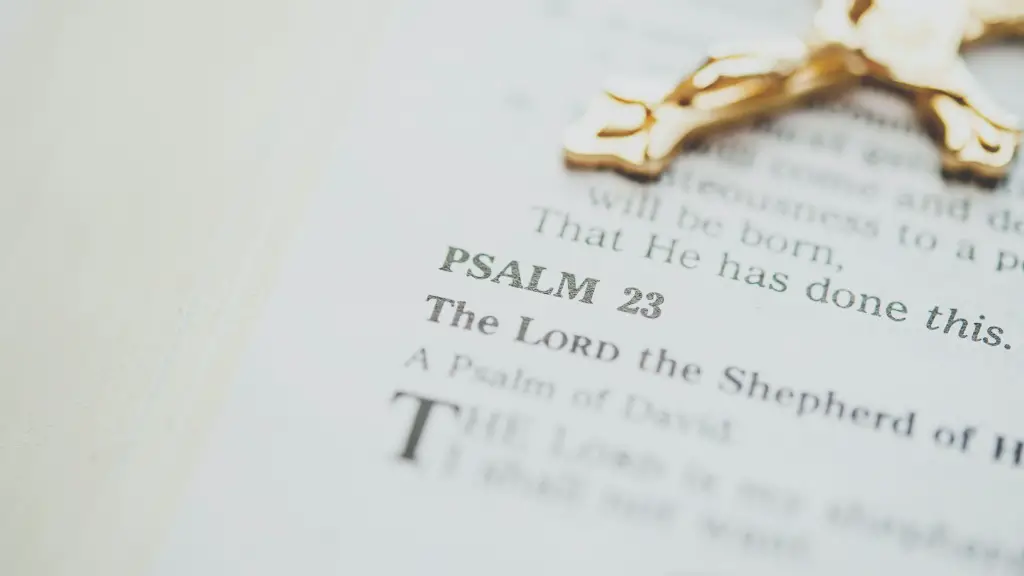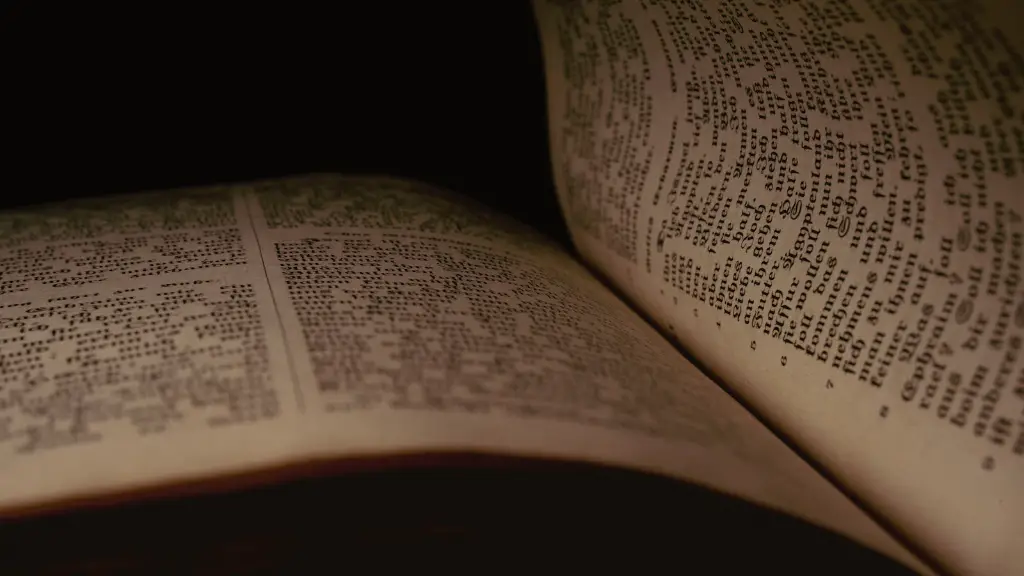Introduction
How many books were removed from the Bible? This is a commonly asked question, which holds a certain degree of complexity. Despite being a commonly held belief that certain books have been removed from the Bible, this is not necessarily the case. The canonization of the Bible is an expansive and complicated process that spans centuries, so establishing clear-cut rules can be difficult. In this article, we will discuss the process of canonizing the Bible, how books were removed or accepted, and how these books fit into Protestant and Catholic canons.
Exploring the Canonization Process
The Bible is composed of two parts: the Old Testament and the New Testament. The Old Testament consists of any work prior to 400 BCE, and the New Testament holds any work post 400 BCE. The story of how the Bible came to be is a process steeped in history, with the canonization process beginning in about the 2nd century. According to the National Catholic Reporter, the process of canonization relied in part on the consensus of early Christian scholars from the churches in the Mediterranean region, who determined that some books were consistent with the message of Christianity and should be included in the Bible, while other books should be omitted. Over time, these books were accepted or declined into the canon, a process which ended in the fifth century.
Determining What Books Got Accepted
So what distinguishes which books were accepted and which were not? According to scholar James M. Robinson, there was a consideration of several aspects. First, the writings or books had to reflect the characteristics of early Christian thought, custom, and coherence. Second, the early Christian writers believed the authors must be witnesses of the original event they were writing about in order to be authentic. Lastly, any books must have a certain degree of acceptance in between local church communities. It is important to note that these criteria for canonization were open to some degree of interpretation by the early writers, meaning that some books were not accepted by all denominations.
Books Removed From Protestant Bibles
Upon finishing the process of canonization, the Protestant Bible had 66 books, while the Catholic Bible had 73. This difference came about because some churches accepted different books into the canon. The seven books that were only accepted into the Catholic canon were Tobit, Judith, Wisdom, Baruch, Maccabees 1 & 2 and parts of Esther and Ezekiel. All of these books had similar stories to others that were accepted, such as Esther and Ezekiel, but had profound differences in terms of characters and message. These books were accepted by the Catholic Church mainly for their historical reasons.
Books Removed From Catholic Bibles
Unlike the Protestant Bible, the Catholic Bible includes books that were removed from the canon. These books were mainly from the Old Testament and included descriptions of a particular sect of Judaism called the Essenes, as well as a description of the early Jewish Rite of Pius. While some scholars have argued that the inclusion of certain books is important for the historical record of Christianity, the Catholic Church judged that their inclusion could be consistent with the message of Christianity.
Conclusion
In conclusion, the process of canonizing the Bible was far from clear-cut and certainly varied between denominations. Nonetheless, the books that were accepted and deemed canonical were an important component of Christian faith. With all of the various books and stories found in the Bible, it is important to keep in mind that these stories were, at some point, accepted as part of Christian tradition, and this should be celebrated and respected.

